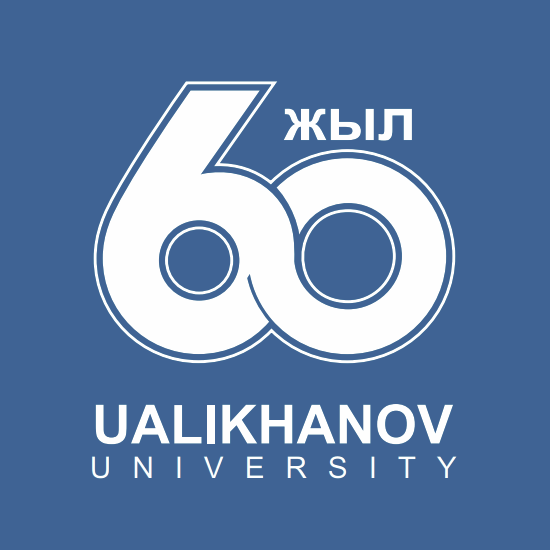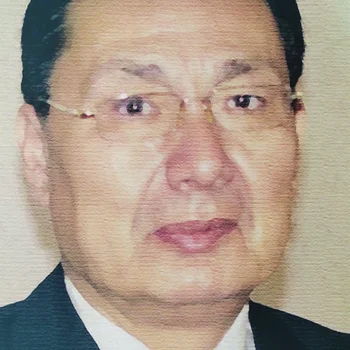

My interlocutor is Shakir Ibraevich Ibraev , Doctor of Philology, professor, from 2007 to 2010 he headed Kokshetau State University named after Shokan Ualikhanov . While waiting for the eminent academician, Doctor of Philology in the lobby of the luxurious capital Abu Dhabi Plaza, I imagined a professor bent under the weight of years. But a youthful, fit, elegant man with a friendly, inviting smile and a penetrating gaze walked towards her with a flying gait.
- Shakir Ibraevich , your biography of the Soviet and Kazakh folklorist scientist, doctor of philological sciences, professor, academician of the Academy of Social Sciences of the Republic of Kazakhstan is easy to find on the Internet, but can you tell us more about your roots?
I was born on January 31, 1950 in the village of Bestam, Shieli district , Kyzylorda region, but in fact my origins are in blessed Kokshetau. I am proud of my roots, my great ancestor - Ablaikhan . In the first quarter of the 20th century, our national hero Kenesary Kasymuly , the leader of the national liberation anti-colonial movement, took up the banner of the uprising of his brother Sarzhan , which began in the Middle Zhuz and spread throughout Kazakhstan. Kazakh rebel troops fought with the Russian army, resisting fiercely, and my distant ancestors, the Torah, Genghisids , were forced to leave their native land and go south. The direct ancestor is Kenesary's brother Bops . After the death of the leader of the uprising, the ancestral lands were taken away, pastures were taken away, and there was no point in returning to where they were not expected - so the Tore clan settled in the Kzyl-Orda steppes.
- Shakir Ibraevich , why did Turkology become your scientific vocation?
Turkology is a wonderful, interesting international science, which is studied by scientists in the USA, Europe, and almost all over the world. Today there is an urgent need for the revival of this most important branch of the humanities. I would like to note that the modern paradigm of Turkology lags significantly behind today compared to the Soviet period, when the Committee of Turkologists functioned under the USSR Academy of Sciences, gatherings of Turkologists were actively held, ideas were intensively exchanged, methodological directions were modernized, and the source base was enriched. Kazakhs are a people with Turkic roots; in our genotype there are many ethno-Turkic geoelements that need research.
In 1973, after graduating from the Faculty of Philology of Kazakh State University , he definitely decided to go into science. I was very lucky by fate: after all, a graduate of the Faculty of Philology of Kazakh State University was sent for a two-year internship at the Gorky Institute of World Literature in Moscow, it was a more interesting time for wonderful discoveries. Then I entered graduate school at the Institute of Oriental Studies, and although I was always more attracted to folklore, the place turned out to be in the specialty “Turkology”. Thus, my passion for oral folk art grew into a love for Turkic studies. In 1982-1989 he taught at Kazakh State University , headed the Scientific Center for Manuscripts at the Mukhtar Institute of Literature and Art Auezov , later became the director of this research institute. He explored the problems of folklore and Turkology in his works “The Book of Korkut ”, “Kazakh Epic”, “The World of Epic”, “Poetics of the Oguz Heroic Epic”, “The Abai Phenomenon”, “Kazakh Ritual Folklore”
- Shakir Ibraevich , you are a laureate of the Valikhanov Prize, a member of the International Committee on Folklore, chairman of the Dissertation Council for the defense of a doctoral dissertation at the Institute of Literature and Art, a member of the Representative Council at the International Kazakh-Turkish University. A. Yassawi , a sought-after eminent scientist. How did they perceive your appointment as rector of the university in Kokshetau in 2007?
The blessed Kazakh region of Kokshetau is the land of my distant ancestors, there is the concept of “the call of the father’s land”, this is exactly the feeling I experienced when crossing the threshold of the university named after Genghisid Shokana Ualikhanov . I took up leadership with enthusiasm and a positive attitude to do something useful for my fellow countrymen. Unfortunately, I didn’t have time to implement much of what I had planned, but I’m still glad that I managed to do it even in a short period of time.
First of all, I invited scientists, doctors, candidates of science, and linguistics specialists to the university. I was surprised by the absence of a Dissertation Council at the university, which means that it should have been created; this required certain efforts and, above all, the will of the leader. It is clear that, first of all, we need qualified personnel who can teach teaching methods. I saw that people are having a hard time, wages need to be raised, teachers who have been working for years and decades have not seen ministerial honors: medals, certificates of honor, letters of gratitude. I had to organize petitions to reward the worthy. Students suffering from chronic diseases have nowhere to turn for medical help - so, on my instructions, a medical health center was created for students, where they were treated and improved their health free of charge. I submitted an application for the construction of a new student dormitory. I remember that at first I saw an unpleasant picture: on the first floor there was a crowd of people in line for the dining room, from where the smells and aromas of cooked food could be heard throughout the first floor .
He immediately gave instructions to attach a catering unit with a separate entrance to the main building. I was shocked by the depressing appearance of the monument to Valikhanov on the square in front of the main entrance of the high-rise building of the university, and immediately gave me the task of developing a project for a bust of the great Kazakh scientist, after whom the university was named. For this purpose, I contacted the famous architect and sculptor Shota Idrisovich Valikhanov in Kazakhstan, who unconditionally approved my idea. With the then akim Akmola region Albert Rau entered into an agreement to prepare the publication of an encyclopedia of the Akmola region by our colleagues, university scientists.
- Shakir Ibraevich , what are your impressions about the “ Kokshetau ” period of your career?
When I arrived in Kokshetau, I was amazed by the people. Yes, people are decent, possessing internal culture, educated and this is, perhaps, the main thing, responsible, disciplined. I felt and felt the support of the teaching staff and students in everything; it was encouraging that the instructions were carried out by the team strictly, the employees understood the importance of change. And the results could not but rejoice: during the period of my leadership of the university, funding for the research activities of university teachers significantly increased. Six scientific projects directly by the Ministry of Education and Science, and in each project 7-8 people won grants. In 2010, the International Turkic Academy opened in Astana, and I was invited to head it. I remember with gratitude that fertile time when, under my leadership, it was possible to publish the works of many foreign Turkologists. Among the fifty brilliant works published by the Turkic Academy, I would like to note the publication of a series of books on modern Turkic studies, an international Turkic almanac, and a yearbook of the Turkic anthology.
- Shakir Ibraevich , how do you see the modern university of Kazakhstan?
I am convinced that less is more, this is my opinion regarding the clearly increasing number of universities in the country. It is impossible, in my opinion, to embrace the impossible, to grasp at everything, so we need a specific specialization, a system of ranking universities. For example, “agrotechnical”, “technological”, “medical”, “pedagogical”. A big problem is the notorious MTB: a modern university should have enough classrooms and laboratories, its own rich library collection, and high-quality teaching staff. However, today private universities prefer to take the number of places, but another question is personnel training - tomorrow graduates will become agronomists, teachers, translators, what benefits can they really bring to the country...
As for Valikhanov KSU itself, which I headed for three years, this regional university was practically no different from the central ones. The question is primarily in personnel, personnel decides everything! So I tried to renew and refresh the atmosphere of the university entrusted to me with an influx of qualified scientists in the field of linguistics. Thanks to friendly connections with many luminaries of philological science, I succeeded. In today's world of knowledge, many things are changing rapidly, especially the information field. A modern university must be sensitive to the trends of the times and flexibly adapt to inevitable changes. Therefore, a modern university is, first of all, an innovative university, a springboard for scientific research, a strong teaching staff, a liberal management system, its own comfortable and complete space, and a campus. After all, if you ideally create a creative environment, a kind of democratic atmosphere, student brains will inevitably work in the right direction.
- Shakir Ibraevich , and your wishes to your colleagues and students!Good health, because everything else will follow.
Energy of the Spirit, creative self-realization, faith in yourself and your strength!